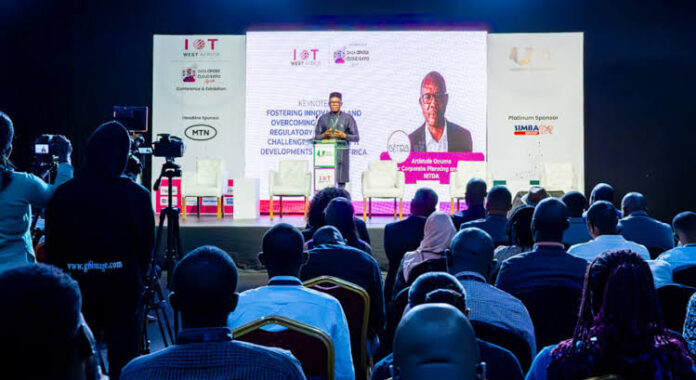Nigeria is playing a crucial role in driving the technology economy in West Africa, with the region’s telecom sector now valued at an impressive $63.1 trillion. This growth is primarily fueled by the booming fields of fintech, e-commerce, and digital marketplaces, which collectively contribute about 80 percent to the annual growth of the sector.

A significant factor behind this economic expansion is the annual injection of $30 billion into the region’s Gross Domestic Product (GDP) through various digital economy activities. The West African Telecom Regulatory Association (WATRA) provides insights into the factors contributing to this surge in telecom fortunes across the region.
WATRA is an association composed of regulators from West African countries, dedicated to enhancing telecommunications service delivery through collaboration. As of 2024, the region boasts over 400 million mobile subscribers, with a mobile penetration growth rate of 21 percent and over 90 percent of internet subscriptions.
Notably, the growth of mobile penetration saw a remarkable increase from 21 percent in 2019 to an astounding 60 percent in 2023. This surge can be attributed to significant investments in telecom infrastructure and advancements, with Nigeria leading the way in these developments.
The telecom sector now accounts for 77 percent of the region’s GDP, with the rollout of 5G technology in Nigeria, Ghana, and other West African nations acting as a key driver of growth. This technological advancement is expected to enhance connectivity and open new avenues for digital services.
To support this growth, WATRA has initiated several integrated regulatory policies aimed at expanding infrastructure and broadening the regional marketplace. Although WATRA is not a regulatory body, it believes that fostering regional integration, reducing data costs, and improving connectivity services are essential for sustaining the growth momentum.
Aliyu Aboki, the Executive Secretary of WATRA, emphasized the importance of enhancing connectivity and lowering costs associated with various submarine cables that link West African countries. He stated, “We are also working to improve interconnectivity among infrastructure companies. These companies should be able to connect within West Africa instead of allowing our data to first travel to Europe before returning to Africa.”
WATRA’s focus includes encouraging the hosting of more West African data in local data centers, rather than relying on European facilities, to help reduce costs and enhance efficiency. Their primary goals are to increase regional connectivity, lower data costs, and improve access to spectrum resources.
As the umbrella organization for telecom regulators in West Africa, WATRA has been instrumental in facilitating the achievements of individual regulatory bodies through support and collaboration. Their efforts have led to increased telecom investments in the region, promoting competition and streamlining regulatory processes.
Nigeria’s leadership in the telecom sector is vital for the growth of West Africa’s tech economy. With continued investments and strategic initiatives by organizations like WATRA, the region is well-positioned to sustain its upward trajectory in the digital economy, making technology accessible to millions and fostering economic development.




